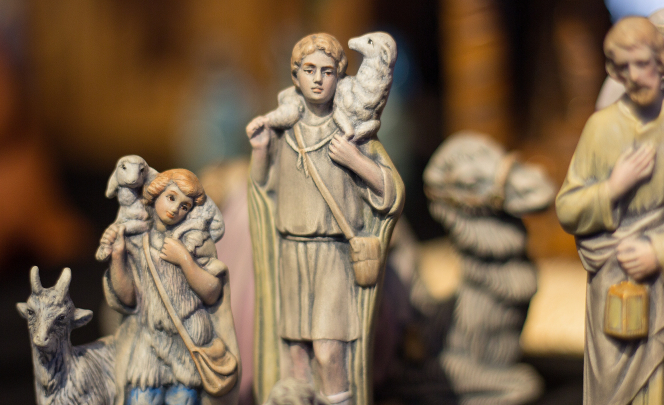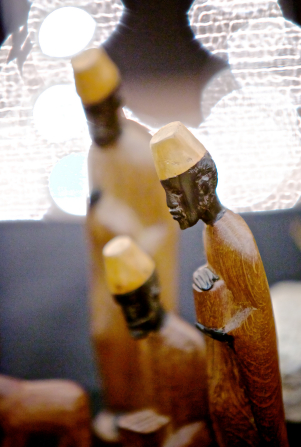by Jewel Leann Williams
So I'm sick today. My back hurts and I have a sore/goopy throat and... blechhh... so, that could have something to do with my state of mind.
But... well, I'm sad. It's the state of the world, the state of the people in it.
I feel like what the Pope said. Yeah, I'm quoting the Pope:
There will be lights, there will be parties, bright trees, even Nativity scenes – all decked out – while the world continues to wage war. It’s all a charade. The world has not understood the way of peace. The whole world is at war,Seems kind of harsh coming from one of the preeminent leaders of Christianity in the world.
I don't think Christmas is all a charade, but I feel a little of the... I don't know, the hopelessness, the tiredness--how long will we keep hoping, praying, working for peace?
It reminds me of the song "I Heard the Bells on Christmas Day" which actually comes from the 1863 poem "Christmas Bells" by Henry Wadsworth Longfellow.
The story behind the poem is heartbreaking. Longfellow's son had been severely wounded in the Civil War, and his wife had recently passed away. Longfellow was looking around at Christmas preparations, and saw the same thing--a charade.
And in despair I bowed my head;
"There is no peace on earth," I said;
"For hate is strong,
And mocks the song
Of peace on earth, good-will to men!"
I feel ya, Hank. I am disheartened by not just the wars. Not just the shootings. Not just the flood of refugees from multiple countries. It's more than that.
It's the generalized hatred I see almost everywhere. Or maybe not hatred, but contempt for everyone. People will jump right on down the throats of anyone who does not echo their opinions (or often, even those that do). Traffic--oh my goodness, I've been certain I was going to witness vehicular homicide like 10 times in the past week alone. Shopping. The news. The Internet. It's everywhere.
Hate is strong, and hate does mock the song--the prayer--of "Peace on Earth, Goodwill to Men."
So do we give in?
Longfellow's lament was answered in the next stanza:
Then pealed the bells more loud and deep:"God is not dead, nor doth He sleep;The Wrong shall fail,The Right prevail,With peace on earth, good-will to men."
Again, I agree with Longfellow.
As much as I don't feel it right now, I know, in my heart of hearts, in my bones, that the right WILL prevail. Love really will, eventually, conquer all.
God is not dead.
Christ IS NOT dead.
I hang on to that knowledge.
Because Christ was born, and died, and lives(!), all that is wrong with the world will be made right.
It is the answer to the lament: "Christmas is a charade"
With Christmas, we celebrate the hope that is Christ. We acknowledge that even among all of the human-frailty-inspired hatred and chaos of our fallen world, that we can find peace in Jesus Christ.
He lives. Because of that, Christmas will NEVER be a charade.
Comment below: How do YOU maintain the Christmas spirit, even among the sadness and chaos of what's going on in our world today?







